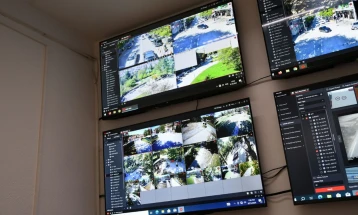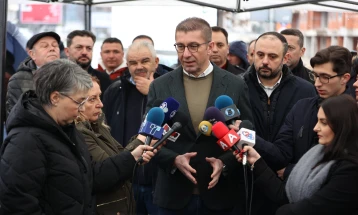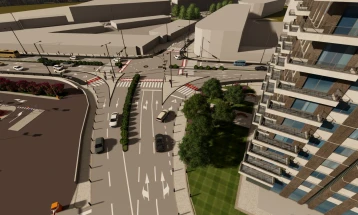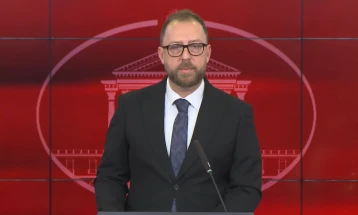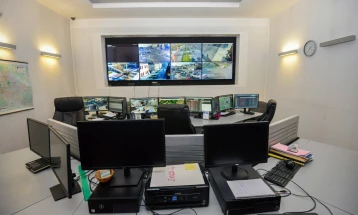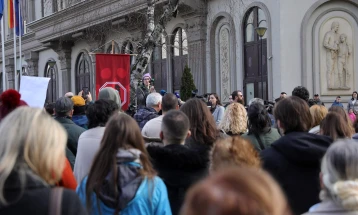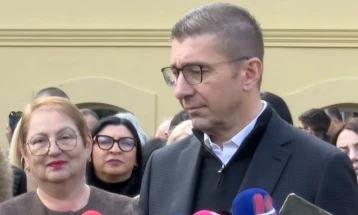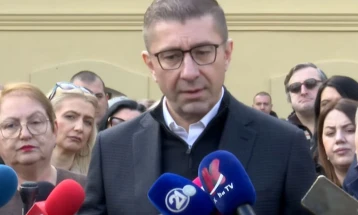Free media coverage often ends in attacks and intimidation; institutions still slow to bring perpetrators to justice
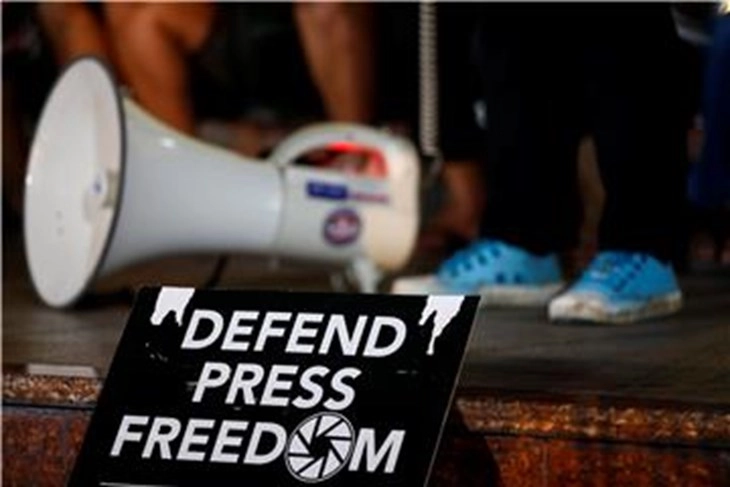
Skopje, 13 November 2021 (MIA) – In 2020, the Association of Journalists of Macedonia (ZNM) registered two physical assaults and 12 different forms of verbal threats to life and other intimidation tactics, boosting the number of serious attacks in this country to 14, which has nearly tripled since 2019. According to information given by UNESCO, 62 journalists worldwide were killed in 2020 alone only for doing their jobs. Between 2006 and 2020, over 1200 media workers have lost their lives. Nine out of ten times, the killers walk free.
“One assault and one death threat have been registered in 2021, as well as three severe disruptions of journalists while reporting from local elections, so five cases until November. What’s characteristic of this year and the previous is that most attacks and threats have been directed to women journalists,” ZNM director Dragan Sekulovski told MIA.
Honoring the International Day to End Impunity for Crimes against Journalists, marked on November 2 each year, UN Secretary-General António Guterres said that many journalists have lost their lives while reporting from the scene of a conflict, but the number of media workers killed outside of conflict zones has increased in the past years.
“In many countries, researching corruption, human trafficking, breaking human rights or ecological issues puts journalists’ lives at risk,” Gutteres said.
Institutions remain silent about the attack against 20 journalists during 2017 Parliament storming
The ZNM and the Independent Union of Journalists and Media Workers (SSNM) gathered outside the Public Prosecution's Office in Skopje on the International Day to End Impunity for Crimes against Journalists with the message that “April 27 remains a symbol of the impunity for crimes against journalists”. Mladen Chadikovski, ZNM president, called upon the institutions, asking them to seriously and effectively investigate all attacks against journalists, and bring the perpetrators to justice.
The ZNM and the SSNM have initiated legal changes to the Criminal Code which will end attacks against journalists, making them sanctionable in the same way attacks against officials are.
“If we didn’t get justice for April 27, now’s their chance to fix that mistake. Over the next period, they should adopt the law which will enable criminal prosecution for attackers who attack the media and media workers,” said SSNM president, Pavle Belovski.
Journalist Dushica Mrgja, who was one of the journalists that were attacked in the Assembly on April 27, 2017, said that her assailant has not yet been identified.
“On the other hand, part of the assailants who attacked politicians have been sentenced, some have had their sentences reduced, others were pardoned according to the political markets that were created. To make an absurd situation worse, we started our own lawsuits, supported by the Association of Journalists and media associations,” Mrgja said.
To make the irony greater, Mrgja says that they were insulted by the judges, and some of them had their rights questioned, whether they were truly journalists, and what were they doing in the Assembly on April 27.
“I want to answer to everyone, in the name of all colleagues present at the Assembly and the infamous press center on April 27, if they forgot what they saw on TV because we were the ones reporting, and our crews sent videos and reports. We were in Assembly on April 27, the journalists saved the country – I insist that if we weren’t as loud as we were about the terror we faced, the number of casualties would’ve been much greater. That’s why April 27 can’t be forgotten, and there has to be justice for journalists,” Mrgja said.
The election process is a holiday for democracy, an obstacle to free reporting for media workers
Attacks were not avoided this year, as well as threats and verbal pressures against media workers which relentlessly reported during the local elections.
“The ZNM received three complaints of severe disruptions in the work of journalists, and lighter breaches of media workers’ rights,” Dragan Sekulovski said.
He added that practice shows that complaints about disruptions increase during election campaigns, and there have been examples when such disruptions occurred on election days.
ZNM's press release says that in several separate incidents, journalists Xumadije Ibraimi of TV Klan, Salije Sadiku of TV 21, and Ferikan Arifi of Euronews Albania, as well as others, had their work obstructed while reporting about the election process by members of election committees, members of political parties, and police officers.
Condemning the incidents, the ZNM called on the authorities to act urgently and solve the reported incidents.
“The SafeJournalists Network, which represents more than 8200 media professionals in the Western Balkans, joins the efforts of one of its members, the Journalist Association, to raise awareness of the issue of breaching journalists’ rights, especially during elections, while the right to inform is essential. It joins the calls for the authorities to solve the incidents and punish the perpetrators,” the press release says.
The European Commission progress report recommends better coordination between institutions for quicker action against reported attacks and preventing impunity
The report highlights the problem of attacks against journalists, pointing out that there is a need for better coordination between various institutions for quicker action against reported attacks and preventing impunity, Sekulovski says.
The ZNM and the SSNM suggested draft amendments to the Criminal Code in order to strengthen protection for journalists and other media workers by placing them in the group of professions which gains additional protection when exposed to attacks and threats due to the nature of their work, as well as bigger proactivity by the prosecution.
The amendments to this law are already in Assembly proceedings. According to their information, the director of the Journalist Association says that he expects them to be adopted by the end of 2021.
“This is just one step towards creating systemic solutions to improve the safety of journalists. Other solutions the Journalist Association insists on are to create separate sectors within the Primary Public Prosecution which would investigate the breaches of journalists’ rights, and not just physical attacks, but online threats and intimidation as well, which have increased over the last few years,” he said.
The ZNM director added that it’s important to follow courtroom practice, especially in cases in which the damaged party is a journalist, in order to find out if judges follow the practice from the European Human Rights Court in Strasbourg.
ZNM's website has a public registrar divided by years, where it says exactly which journalists were attacked, what year, and by whom, if that information is known, as well as if the cases were reported to the police.
Kristina Ivanovska
Translated by Dragana Knezhevikj
